Have you noticed your rabbits constantly scratching? No appetite? Or have redness on their skin? These could be signs that your rabbit has a parasite infestation.
Infestation occurs when exposed to contaminated food, water, environment, or an infected animal. Common parasites among rabbits are roundworms, tapeworms, and pinworms. But among the three, pinworms are the most common in rabbits. Pinworms are host-specific, so they only infest rabbits.
As pet owners, you have to know how to handle your rabbits when worm infestation arises. This article will address worm infestations in your pet rabbits and how you should care for them.
Knowing about these issues can prevent health complications in your rabbits and ensure their well-being.
Understanding Worm Infestation in Rabbits
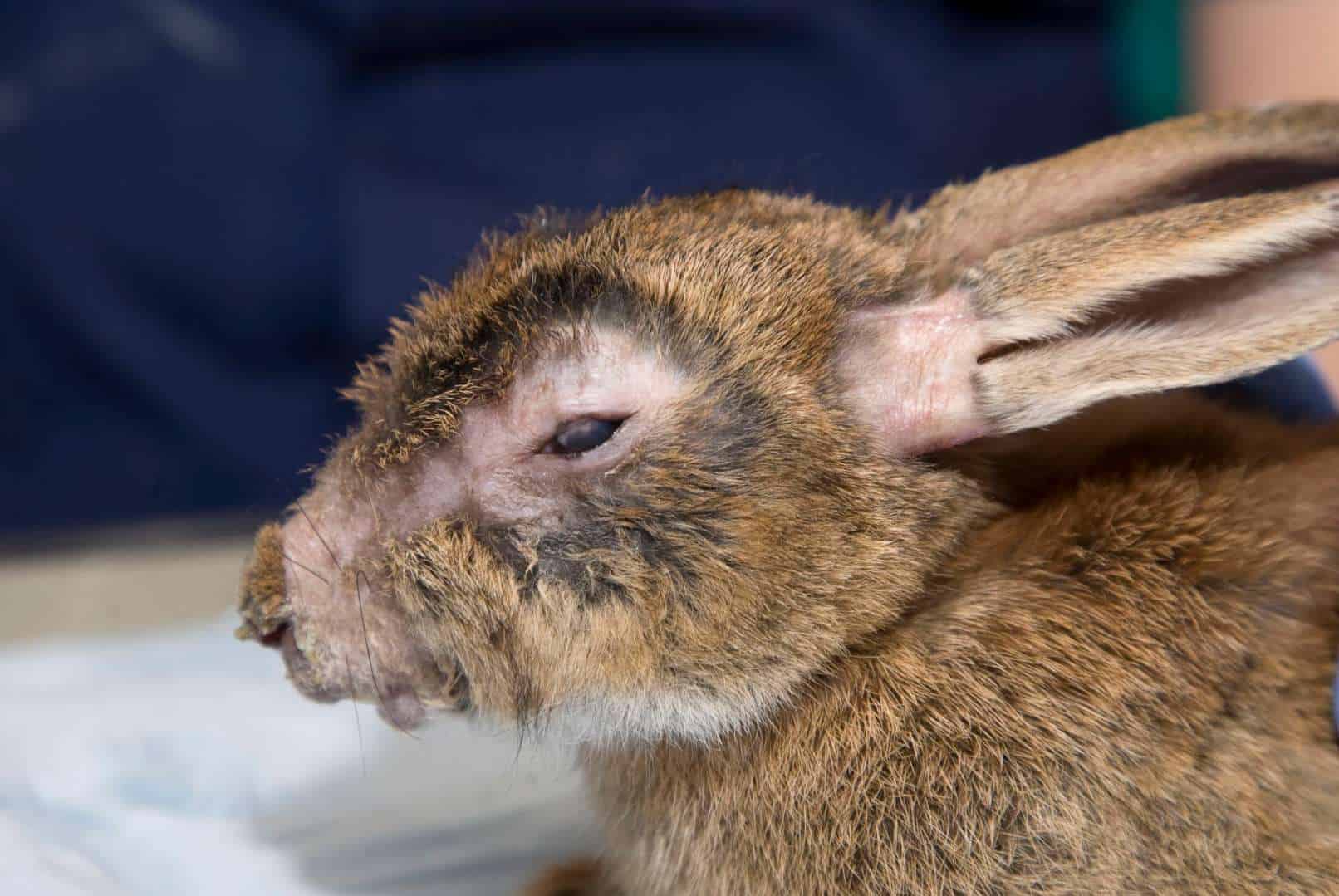
You can only provide care efficiently if you know and understand worm infestation. Worm infestations in rabbits are parasitic, negatively impacting your rabbit’s digestive system. So, what are the kinds of worms your rabbit can get?
Roundworms in Rabbits
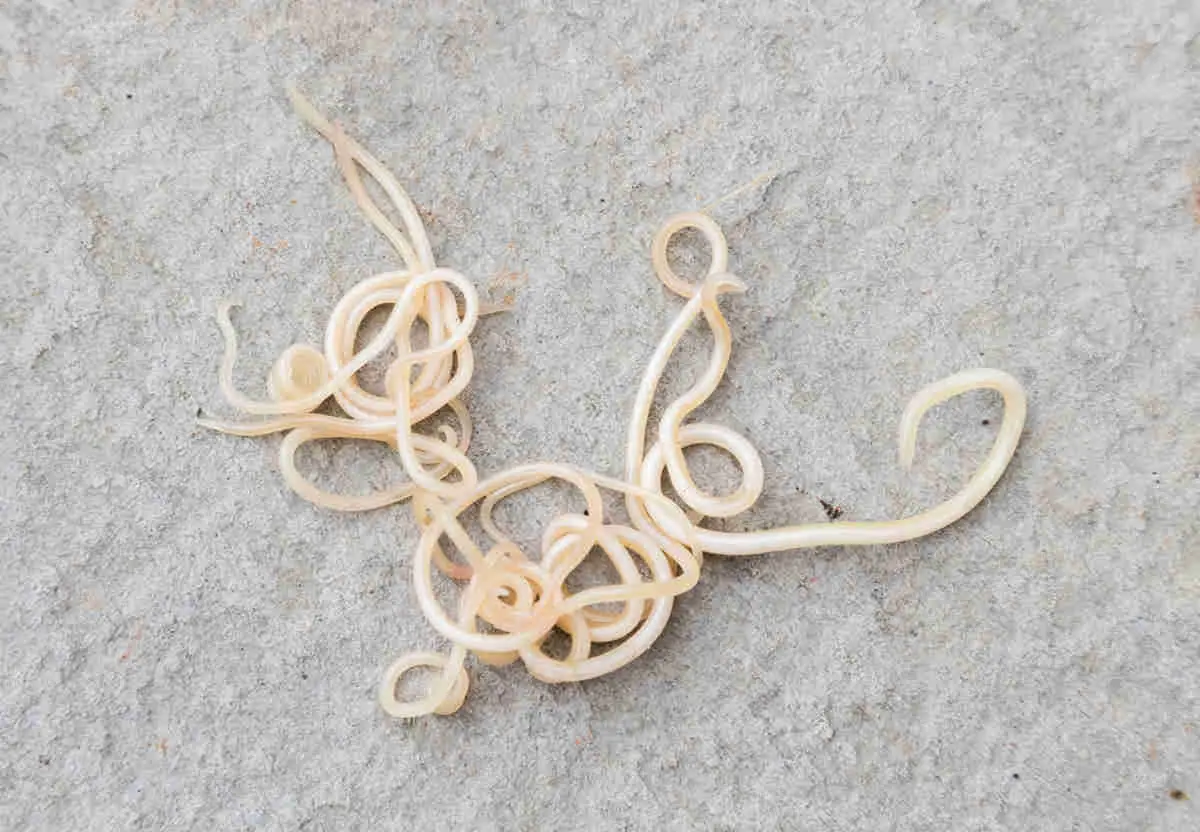
Roundworms (Obeliscoides cuniculi) are cylindrical worms with pointed-head. It is a common intestinal parasite that you can find in rabbits. Roundworm stays in the small intestines of your rabbit and grows up to several inches.
You have to keep your rabbits away from contaminated water or food. These places may host roundworm eggs. If exposed to contaminated things, rabbits are at risk of roundworm infestation.
Tapeworms in Rabbits
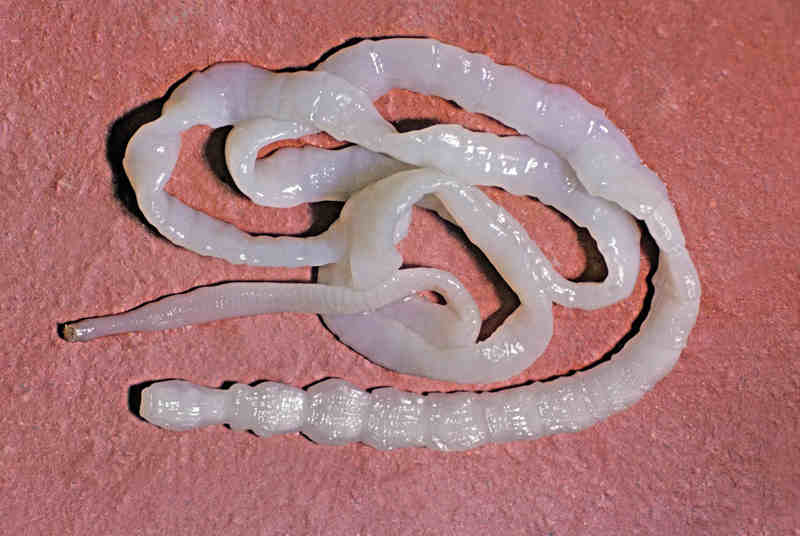
Tapeworms (Taenia pisiformis) are long, flat-bodied worms that can infest your rabbit’s stomach. This stomach worm is a rare infestation among rabbits because of how it can be transmitted. Tapeworm infestation is only common to pet rabbits that have outdoor access.
Rabbits are only infested if they ingest an immediate host with tapeworm larvae. Common hosts of this worm are rodents, and rabbits can become victims if they consume infected hosts. Once a rabbit consumes a direct host, the tapeworm larvae infest its intestines. If not detected early, the larvae grow into adult tapeworms and may cause skin and liver cysts.
Immunocompromised rabbits are also more susceptible because of their weak immune system. But rabbits can only pass on tapeworms if they become preyed upon.
Pinworms in Rabbits
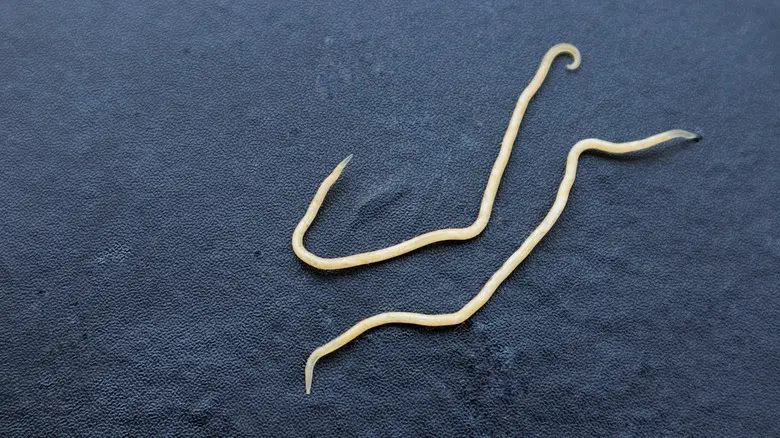
Unlike tapeworms and roundworms, pinworms cannot infest other animals as they are only host-specific to rabbits. It may not cause severe problems in rabbits, but the itchiness can distress them.
Rabbits get pinworm infestations when eating contaminated feces, food, or water. Pinworm eggs can survive these environments even at room temperature. They become susceptible if you are unaware that your rabbit’s shed has an infestation.
Understanding the life cycle of pinworms is essential to prevent and treat rabbits. Adult pinworms stay in your rabbit’s colon or cecum and lay eggs. So, when infected rabbit poops, eggs pass on the feces, contaminating the environment. And as rabbits are coprophagic, they eat their feces which reinfects them frequently.
If you are wondering if your rabbit is safe from pinworms, observe these signs and symptoms.
Signs and Symptoms of Pinworm Infestation
Pinworm infestation can go undetected for longer as it often shows no symptoms or only mild ones. But, if your rabbits are infested with pinworms at an early age, they might be severely affected. Some signs and symptoms may show when your rabbit is infested:
- Constant itching, biting, and scratching on their hind legs.
- Irritated anus.
- Rectal prolapse.
- Poor condition coat.
- Loss of appetite and poor weight gain.
- Inflammation and redness in infected areas.
- Diarrhea and enteritis after weaning.
- Slow growth.
- Lethargic or decrease in activity.
- Feces becomes sticky.
The most common sign of pinworm infestation is peri-anal itching. Affected rabbits frequently rub their hindquarters on surfaces. They will also appear restless due to the discomfort it brings.
Bring your rabbit to the vet if it manifests these. Early detection results in quick treatment and restore its best health.
What makes our rabbits prone to pinworms is that some are asymptomatic carriers. Asymptomatic rabbits do not show these signs and symptoms yet shed pinworm eggs. Even without the signs, these rabbits can potentially infect other rabbits. Hence, bringing your rabbits to the vet for regular checkups is still best.
Diagnosis and Treatment of Pinworms in Rabbits
You might have observed your rabbit scratching or biting its hind end. Upon taking your rabbit to the vet, they see tiny white worms around its anus or in its feces. The vet is expected to confirm these signs with a fecal test if these signs are present.
Once the vet confirms the pinworm diagnosis, they will provide quick treatment. A single treatment may not be effective since the high possibility of reinfection. Most vets prescribe Ivermectin for deworming. Also, you must remember that some parasites resist some medications.
Anti-parasitic drugs are not enough. You must be diligent in cleaning your rabbit’s cage and sanitizing the areas where they roam and play.
Always discuss what you noticed about your rabbits. It helps keep them safe and reduces detrimental effects.
Prevention and Management
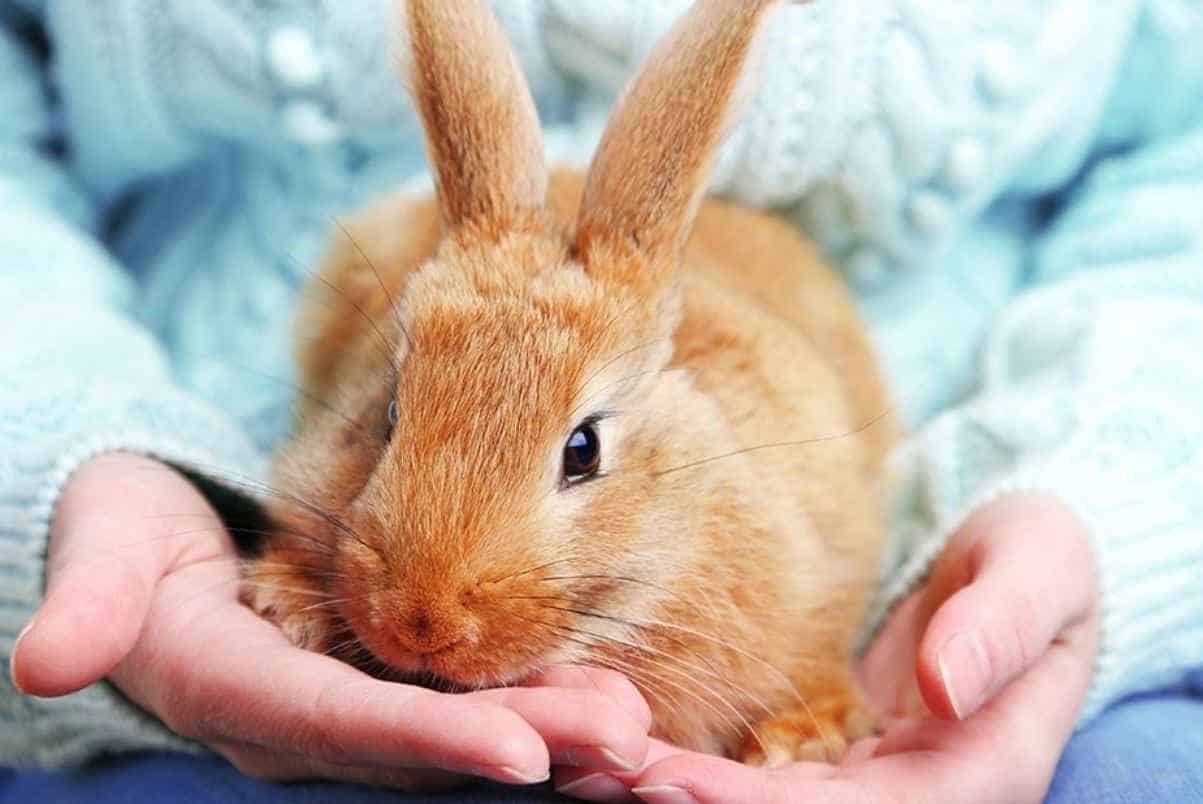
Rabbits with pinworms are challenging to treat. Pinworm infestation is hard to notice. But, if you know how to manage their environment, they have a slimmer chance of having an infestation. Here are some of the ways you can do to prevent pinworms and manage your rabbits.
- Keep your rabbit’s enclosure clean. Enclosures will have soiled beddings and feces from time to time. Clean every corner of their pens carefully to ensure you removed the pinworm eggs. Rabbits need to have a hygienic environment.
- It is always exciting to have a new addition to your rabbits. But you must be careful; isolate the newcomer for at least 2 weeks. This quarantine procedure ensures that your new rabbit is free from parasites. Isolate them before letting other rabbits in contact.
- If you have other pets, bringing them to the vet is also important. This reduces disease risks to all your pets at home. Regular deworming, vaccination, and parasite control protect them from various diseases.
- If your rabbit has recovered from an infestation, disinfect its enclosure. You must thoroughly clean and disinfect its surroundings. This prevents reinfestation and ensures no pinworm eggs are left.
- Nothing can go wrong if your rabbit has a balanced and nutritious diet. Healthy rabbits are less susceptible to parasite infestations.
- Bring your rabbits for regular vet visits. Your vet will give a deworming schedule for your rabbits based on their risks. The schedule will base on your rabbit’s health and living conditions.
Besides these practices, you must also be careful to let your rabbits enjoy the outdoors. Letting rabbits play outdoors makes them prone to having contact with wild rabbits. Wild rabbits may carry parasites that could infect your pets.
If your infested rabbit shares space with other rabbits, you must also have the others tested. Remember, only a proactive and comprehensive approach can effectively manage pinworms.
Added Considerations You Need to Know
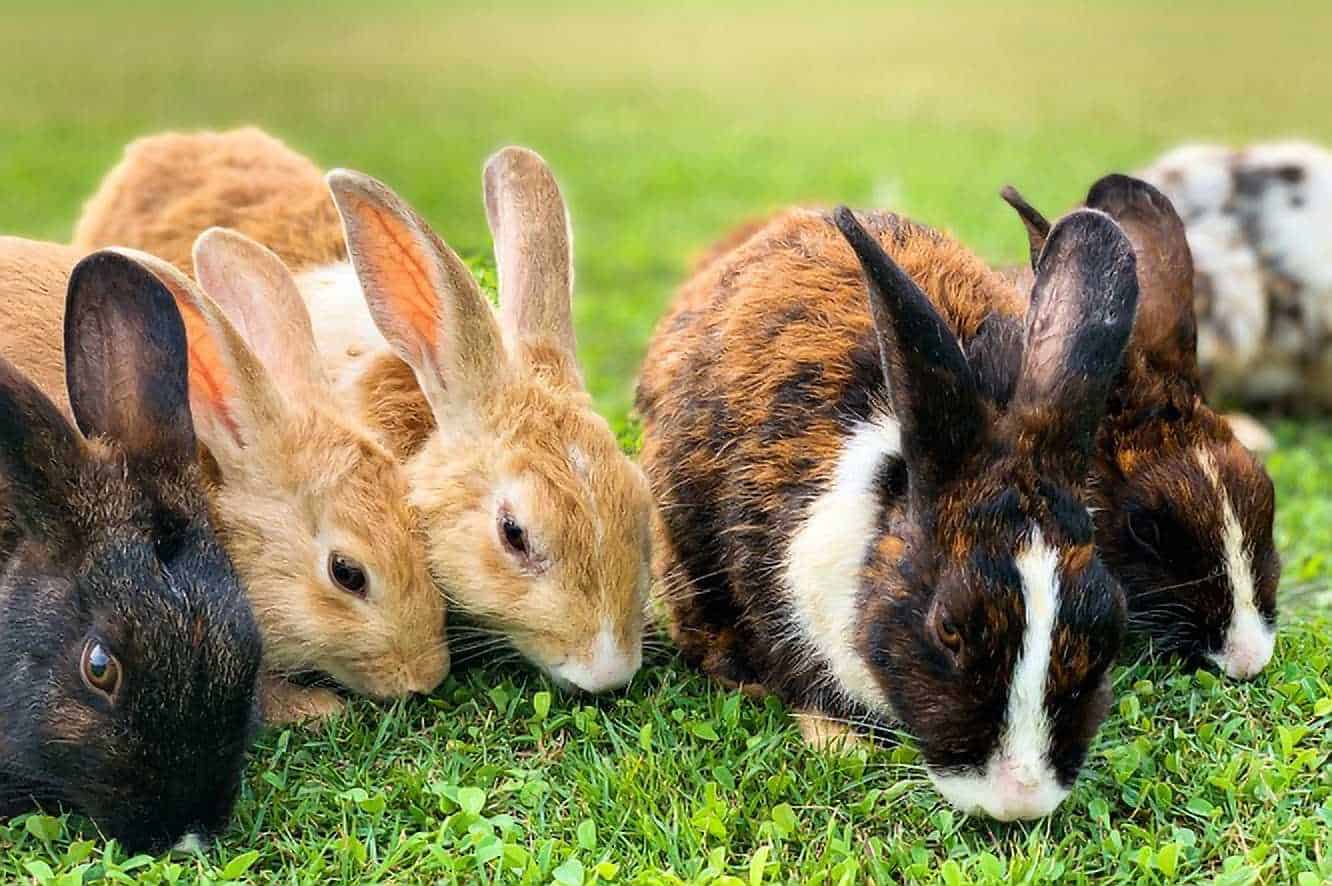
Some of us believe that keeping rabbits indoors prevents worm infestation. But keeping them indoors only lessens their chance of getting infected. What eliminates the opportunity of pinworm infestation is cleaning their enclosure regularly.
Pinworm eggs are hardy and can survive in the environment longer. It is critical to clean and disinfect your rabbit’s shed to reduce the risks of infection.
Rabbits are the natural hosts of pinworms. However, it is essential to note that some pinworm species affect other animals and may pose a zoonotic risk to humans.
Do you have to worry about pinworms?
Educating yourself and your family on handling and interacting with rabbits is crucial. It avoids behaviors that can stress or harm the rabbits. If you have children, supervise them to prevent any injuries.
Owners are not only responsible for the health and well-being of their pets, it is also essential to protect ourselves from potential zoonotic transmission.
As mentioned, some pinworm species may affect other animals and become a human risk. So, ease your worries away by keeping yourself clean and disinfected. We sometimes forget to wash our hands after hugging and petting our rabbits.
Washing and sanitizing your hands is essential. This avoids getting sick or spreading germs to other animals. And yes, even if you did not touch the animals, you must still wash and sanitize your hands.
Conclusion
Pinworms (Passalurus ambiguus) are a host-specific species that only infest rabbits.
It needs a multi-faceted approach to prevent and manage pinworm infestation. But, as you care for different kinds of animals, you have to consider the zoonotic potential. Some pinworm species affect other animals and may put you at risk. So, practice good hygiene, especially after handling pets and their feces.
Responsible rabbit ownership means you have to be aware of parasitic threats. This is one of the keys to maintaining your and your rabbits’ well-being.